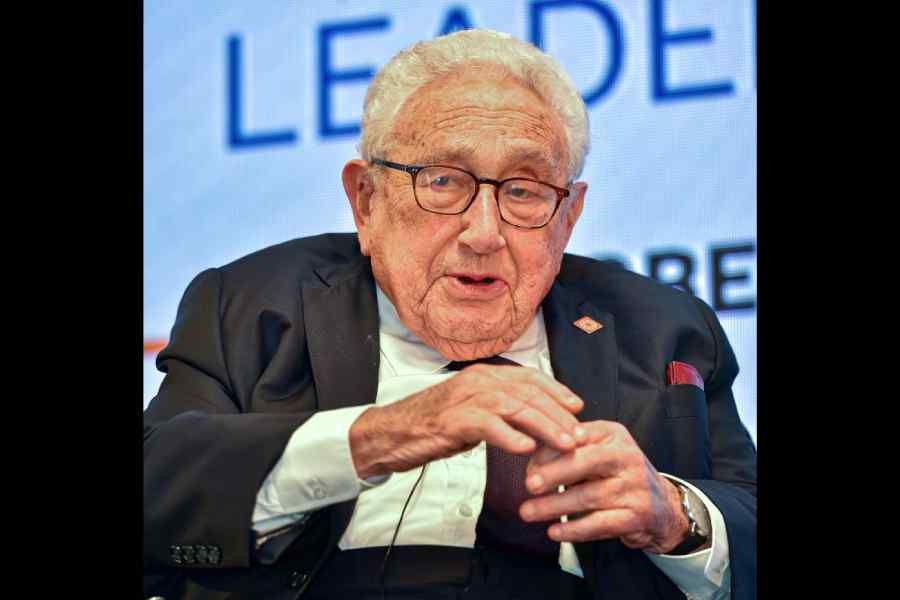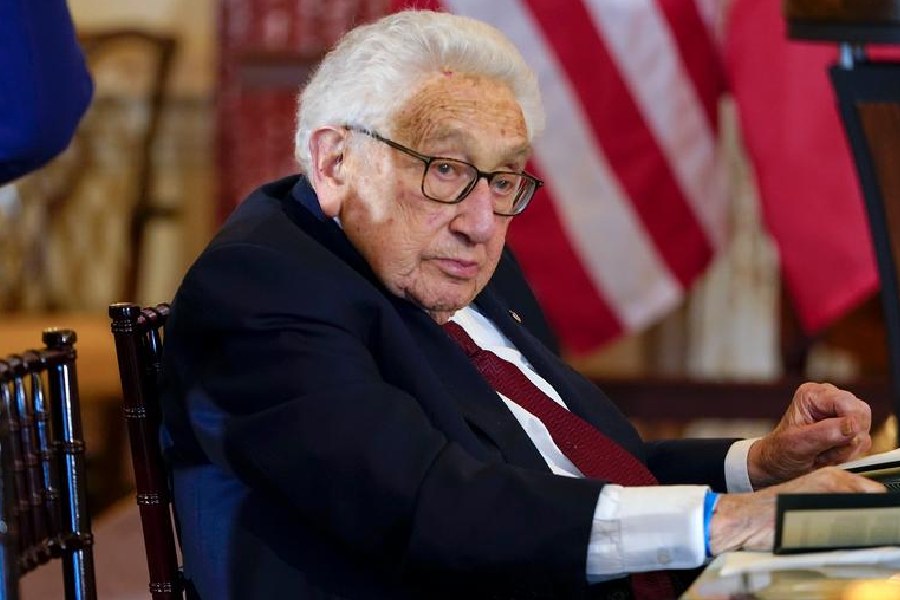In India, the domineering Henry Kissinger, who died on Wednesday at 100, is inextricably linked with his bête noire Indira Gandhi.
Much has changed in Indo-US relations since 1971 and Kissinger had even publicly apologised for his derisive remarks about her, including calling her a "b****" and Indians "b*******", but those words followed him to the grave while India made the US eat humble pie by helping Bangladesh get its independence at the expense of Washington-backed Pakistan.
"Lauded for his strategic insights, the former secretary of state is better remembered for his callousness towards the victims of global conflict," Gary J. Bass, author of The Blood Telegram, wrote in The Atlantic on Kissinger’s death, adding that "his policies are noteworthy for his callousness towards the most helpless people in the world", listing Bangladesh among them.
Using White House tapes — which were declassified years after the Bangladesh War — The Blood Telegram describes the genocide carried out in East Pakistan by the West Pakistan army with US-supplied weapons. These tapes — partly bleeped — revealed how "US policy towards South Asia under (Richard) Nixon was influenced by his hatred of, and sexual repulsion towards, Indians".
And Kissinger, according to Bass, did precious little to discourage it. "On Nov. 4, 1971, during a private break from a contentious White House summit with Prime Minister Indira Gandhi of India — a rare woman leader at the time — the president harangued Mr Kissinger about his sexual disgust at Indians. Mr Nixon said: 'To me, they turn me off. How the hell do they turn other people on, Henry? Tell me.' Mr Kissinger’s response is inaudible, but it did not discourage the president from his theme," Bass had written in an opinion piece in The New York Times in 2020 during his efforts to get more of the tapes unbleeped.
It's during this conversation between Nixon and Kissinger that the President was heard referring to Indira Gandhi as a "witch" ("We really slobbered over the old witch").
“Kissinger pandered to the sentiment and went a step further and called her a ‘b****’; adding that ‘Indians are bastards anyway’,” Bass wrote.
Kissinger apologised for these remarks once the White House tapes were declassified in 2005, by when he had had a rethink on India-US relations as a keen practitioner of realpolitik.
Stating that he had high regard for Indira Gandhi, Kissinger then told NDTV in an interview: “(The foul language has) to be seen in the context of a Cold War atmosphere 35 years ago, when I had paid a secret visit to China when President Nixon had not yet been there and India had made a kind of an alliance with the Soviet Union.”
In his memoirs, Kissinger admits that he found Indira Gandhi formidable and condescending while conceding that she outwitted him and Nixon in 1971. “Mrs Gandhi was a strong personality relentlessly pursuing India’s national interest with single-mindedness and finesse. I respected her strength even when her policies were hurtful to our national interest,” he has been quoted as saying.
But then, as a practitioner of realpolitik, he always knew which side his bread was buttered and, as Bass underlined in The Atlantic, “burnished his own reputation through his memoirs and books, by cultivating the press and foreign-policy elites, and winning the adulation of politicians as varied as Hillary Clinton and Donald Trump”.
This, according to Rolling Stone, was evident in the reactions to his death as “media, conservatives team up to lionise war criminal Henry Kissinger” whose death “finally” the US publication described as “good riddance”.












